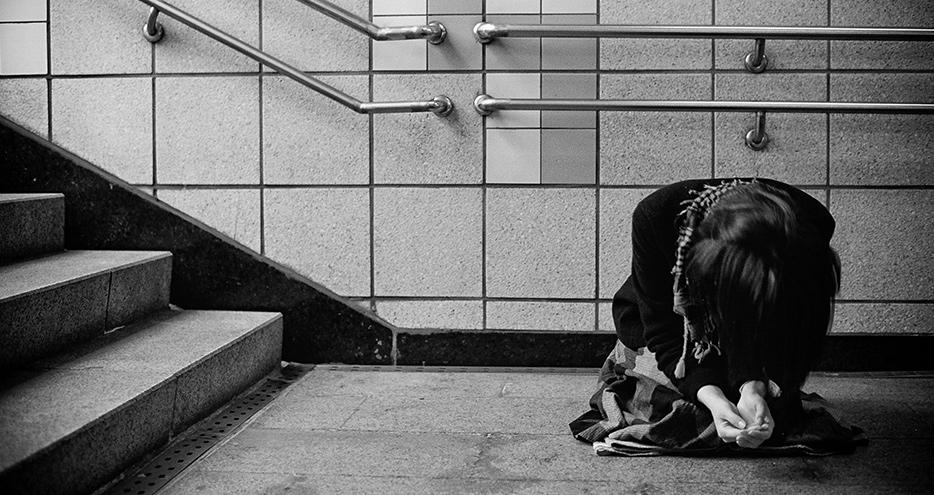UPS Longitudes | Why Human Trafficking Worsens During a Pandemic
Mara Vanderslice Kelly @ United Way

WHY HUMAN TRAFFICKING WORSENS DURING A PANDEMIC
Human trafficking is the fastest growing criminal enterprise in the world. According to the Global Slavery Index, more than 40 million people are living in modern slavery.
While human trafficking is most often associated with commercial sex, it also includes domestic servitude, child labor and exploitation in areas such as migrant farming. It can happen anywhere, to men, women or children; in suburbia and on city streets, in factories and mines and at truck stops, fields or fishing boats.
But today’s confluence of risk factors makes this environment especially dangerous.
“As COVID-19 turns the global economy upside down, experts say human trafficking will become even more prevalent. Economic instability breeds the vulnerability on which sex and labor traffickers prey.”
COVID-19 and human trafficking
As COVID-19 turns the global economy upside down, experts say human trafficking will become even more prevalent. Economic instability breeds the vulnerability on which sex and labor traffickers prey.
Homelessness is a key vulnerability for trafficking victims. Shelters remain full as they limit capacity to meet social distancing requirements. For example, health screenings required for shelter admission make it more difficult for those trying to escape dangerous situations.
Social distancing can lead to isolation and disconnection, which magnifies risks for victimization and exploitation.
COVID-19 is also disproportionately harming people of color, data shows. Black people are contracting COVID-19 at higher rates and dying at twice the rate of white people.
Black families remain more likely to live in substandard housing in neighborhoods of concentrated poverty. This means areas with fewer grocery stores, banks, parks and recreation facilities. It also portends inadequate healthcare, under-resourced public schools, greater exposure to environmental hazards and higher levels of violence.
When COVID-related job losses hit, that’s a dotted line to trafficking, putting disadvantaged people of color at greater risk of targeting.
“To address this escalating situation, leaders in the private and nonprofit sectors are coming together in the fight against human trafficking.”
Don’t forget about children
The average age a child enters the sex trade is 12 to 14 years old. As parents work from home or begin to return to their places of work, the dangers begin to stack up for young people.
During the summer, kids are online — and vulnerable. Social media is a favored communication channel used by traffickers.
The local or national news carries a story all too often of a young girl lured to a stranger’s home or hotel room. What we don’t read about are the children who don’t escape. Sex traffickers are taking advantage of disruption to entrap even more vulnerable youth with false promises online.
Parents can play an important role in keeping their children safe, especially during the COVID-19 pandemic. Make sure to check parental controls on all electronic devices, and speak to your child about the dangers of interacting with strangers online.
UPS and United Way: United against human trafficking
To address this escalating situation, leaders in the private and nonprofit sectors are coming together in the fight against human trafficking. One such partnership is between United Way, the largest privately funded nonprofit in the world, and UPS, our valued corporate partner.
In 2015, United Way launched the Center on Human Trafficking and Slavery. Through the Center, United Way seeks to boost collaboration across sectors and build the public and political will to expand comprehensive solutions to end human trafficking and slavery around the world.
We’ve sponsored two business leader summits in Silicon Valley and Washington, D.C., supported policy advocacy to almost double anti-trafficking funding nationwide and helped pass key legislation to support victims.
Together, we’ve launched a growing effort to train community leaders to identify and stop human trafficking. In 2018, UPSers funded United Way’s “train-the-trainer” program, piloted by local United Ways and 400-plus community leaders in Atlanta, Denver, Milwaukee, San Francisco and San Jose. This program teaches United Way leaders how to train their community partners to identify and report human trafficking.
In 2016, at the behest of UPS and United Way, Georgia voters passed the State Constitutional Amendment for the Safe Harbor for Sexual Exploited Children Fund. This created a dedicated source of funding to help minors who are survivors of sex trafficking and supports restorative services like safe housing, trauma counseling and medical treatment.
Most recently, UPS and United Way launched a new initiative, a pilot program that will address and identify critical needs and gaps in the fight against human trafficking in four key cities across the U.S. Together we will support more communities to push for human trafficking legislation, more training for community agencies and greater public awareness of the issue.
“Victims are often too afraid to ask for help and may even deny needing it when confronted because they are scared or threatened.”
How you can help
Victims are often too afraid to ask for help and may even deny needing it when confronted because they are scared or threatened.
So how can you help? Learn to spot the common signs of human trafficking — victims tend to:
- Avoid eye contact
- Appear malnourished
- Voice scripted, confusing or inconsistent stories about their situation
- Appear unable to speak for themselves
- Lack knowledge of their whereabouts
- Live or work in opaque locations
As UPS says in its training for truck drivers: If you see something, say something.
If you suspect human trafficking or have questions, please report tips to the National Human Trafficking Hotline at (888)-373-7888. To learn more about United Way’s anti-trafficking work, click here.
Read more on UPS's thought leadership blog, Longitudes.

